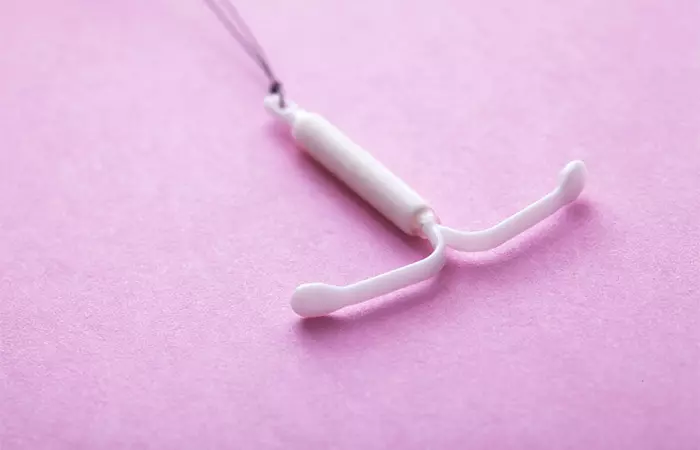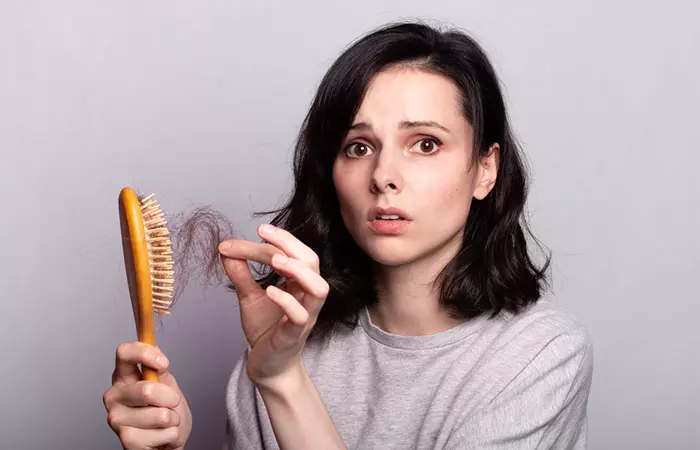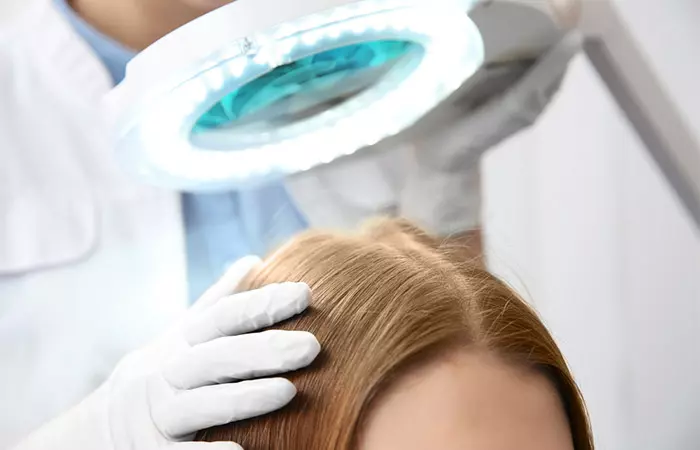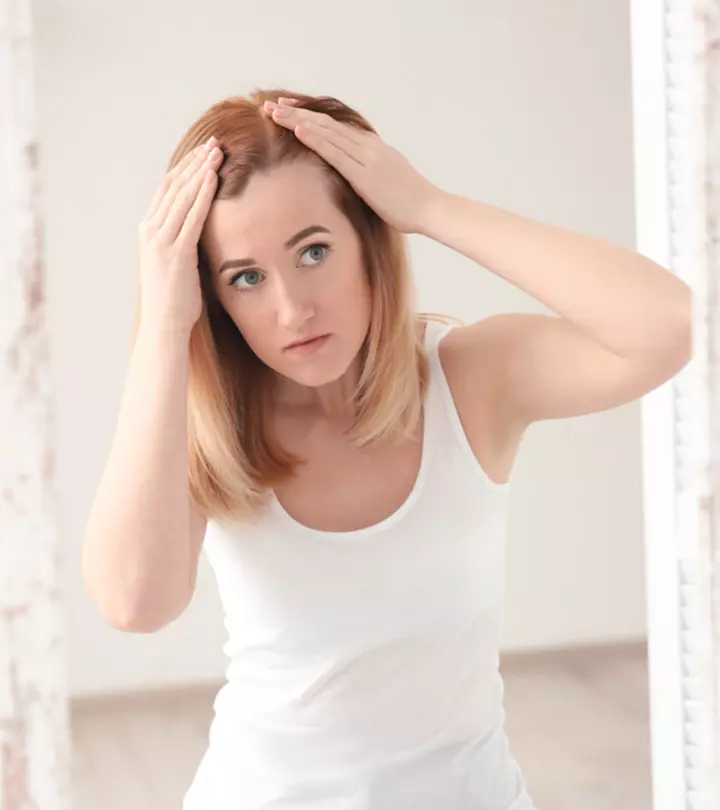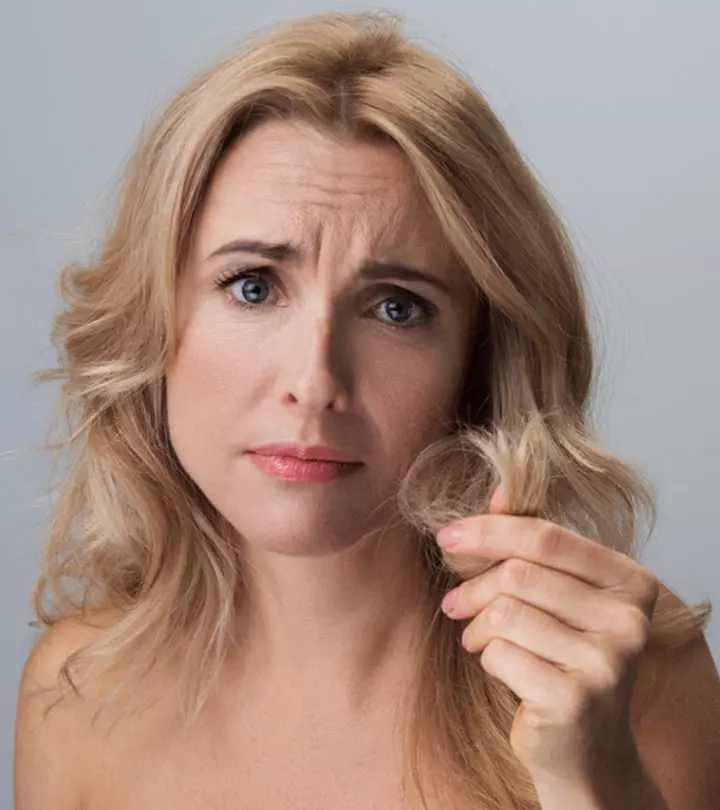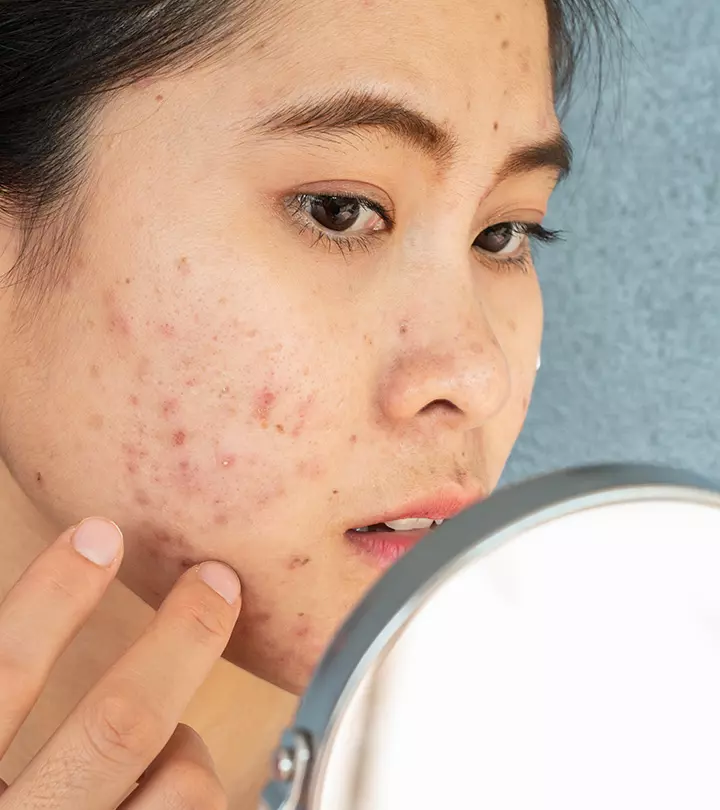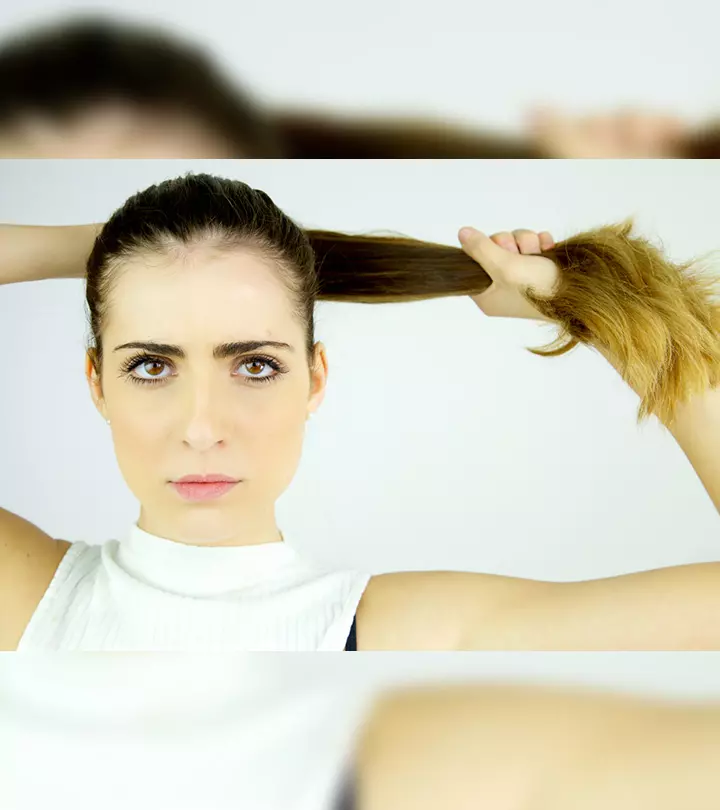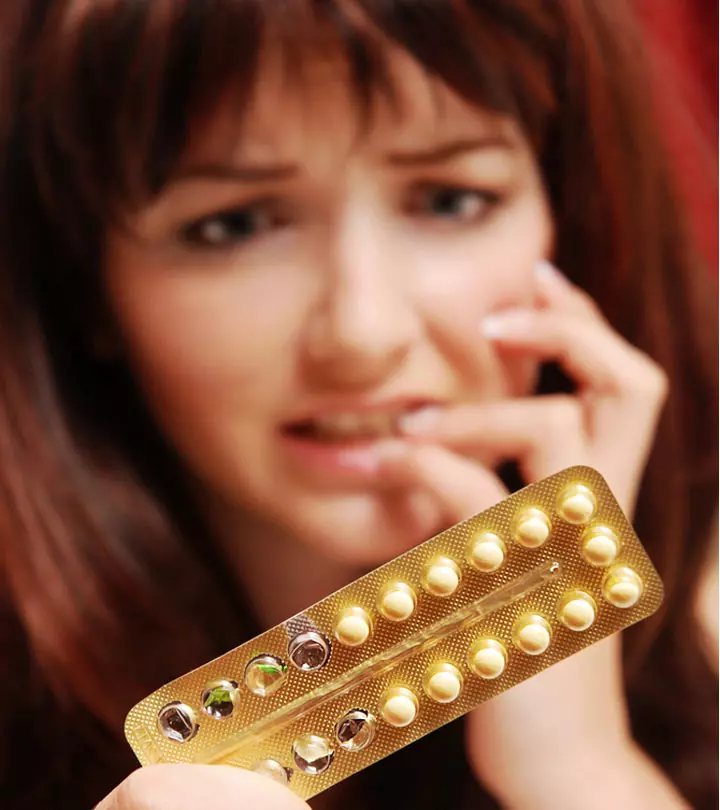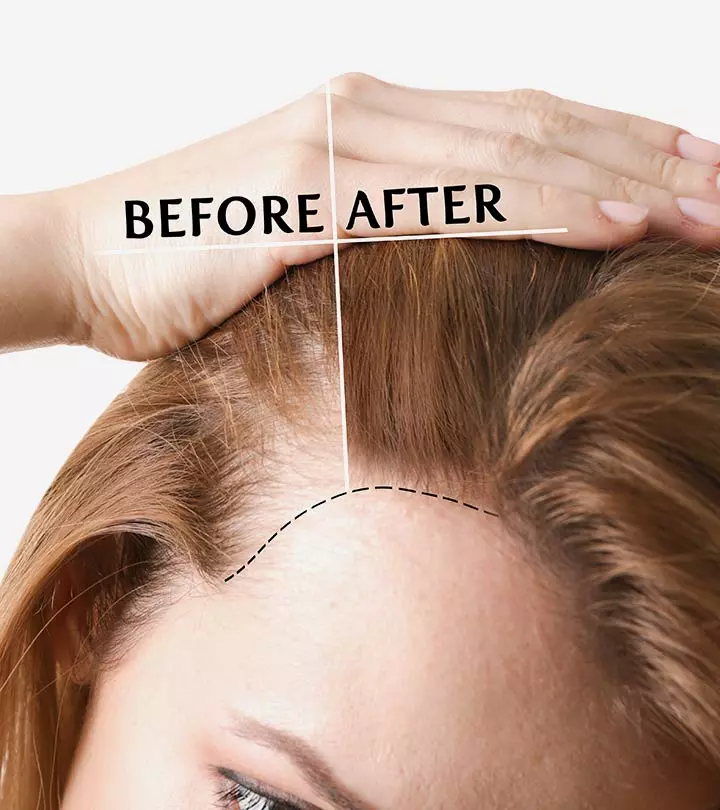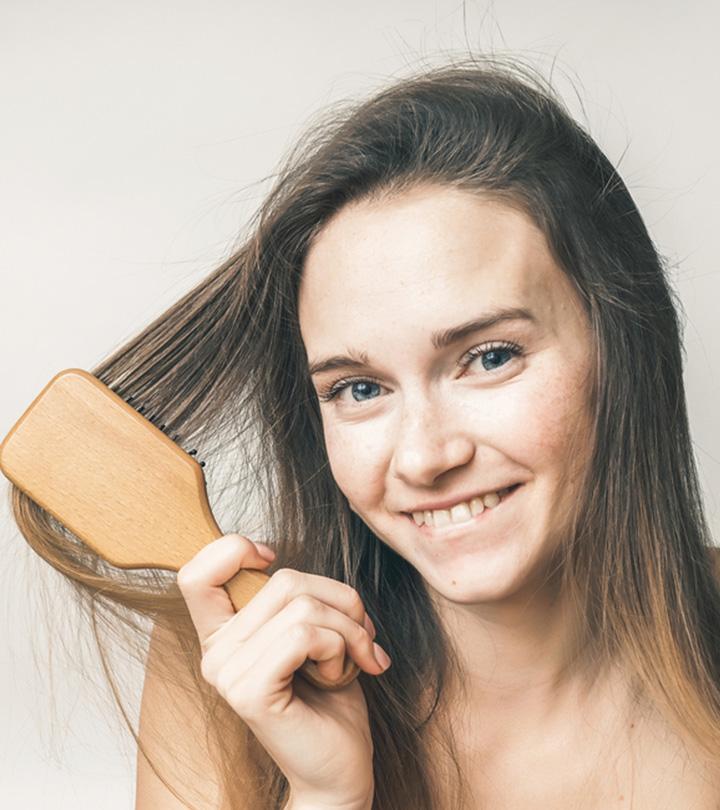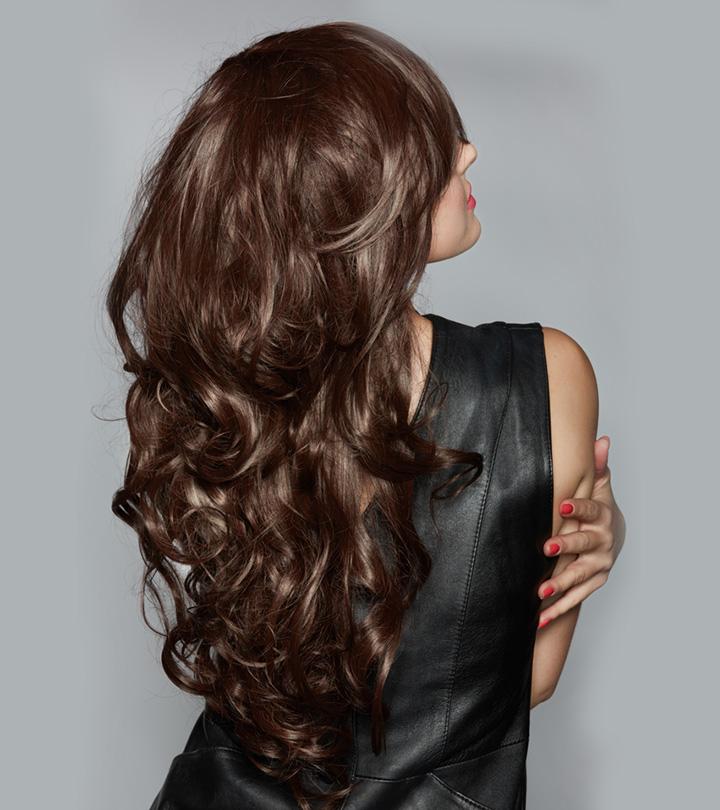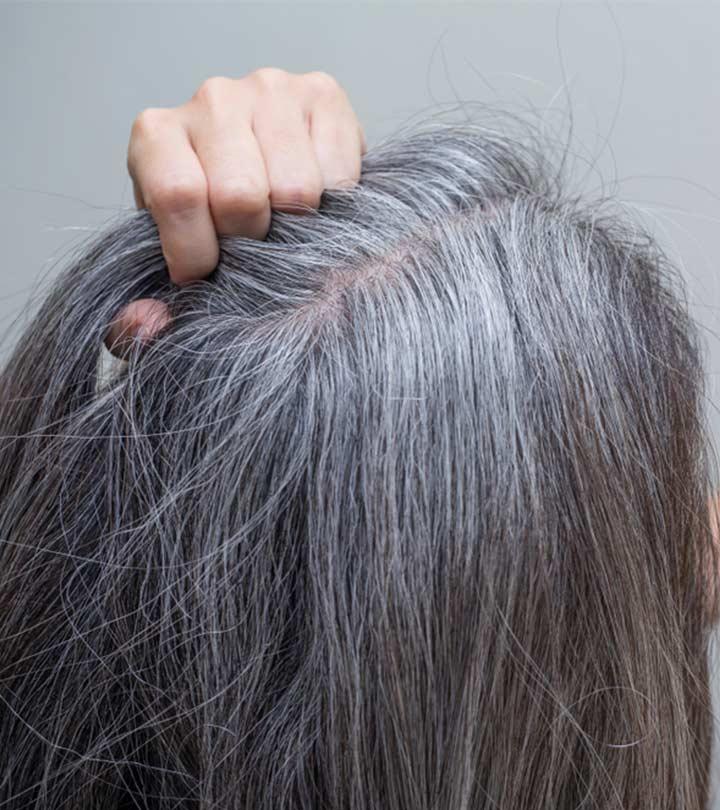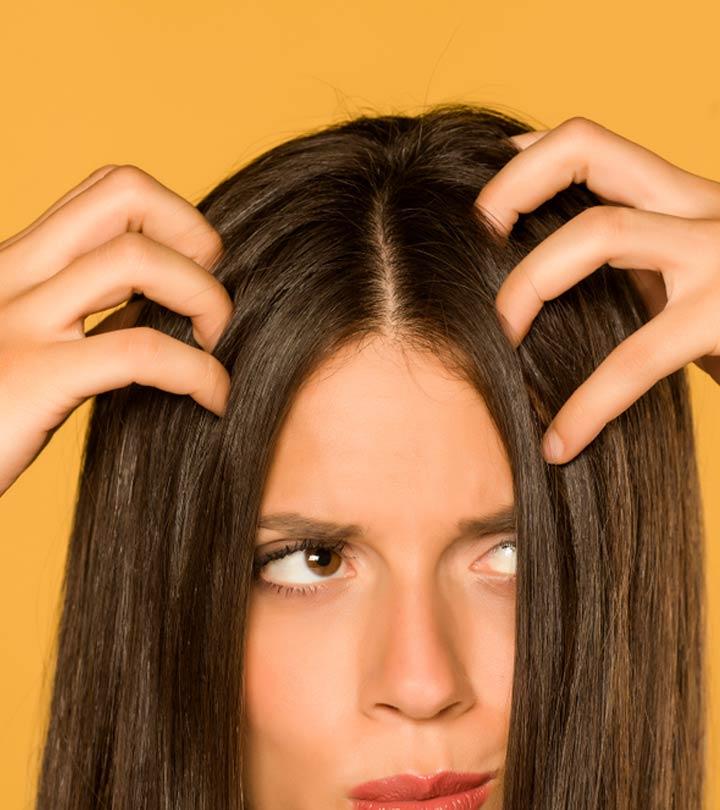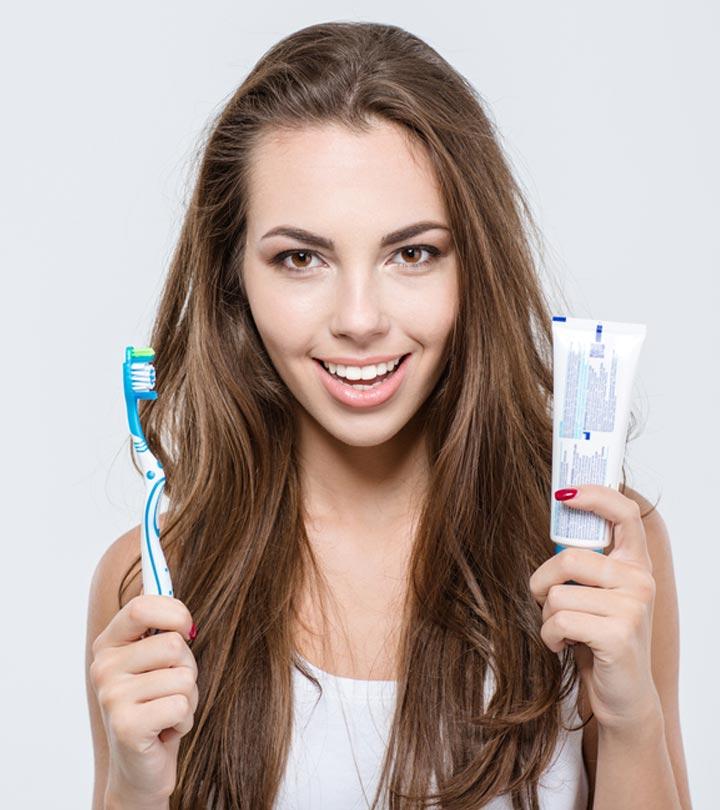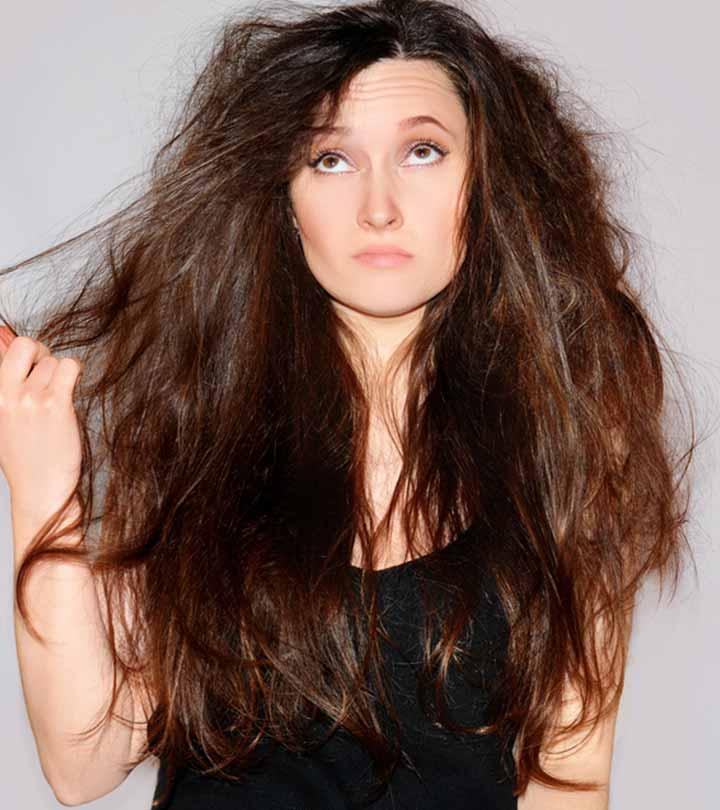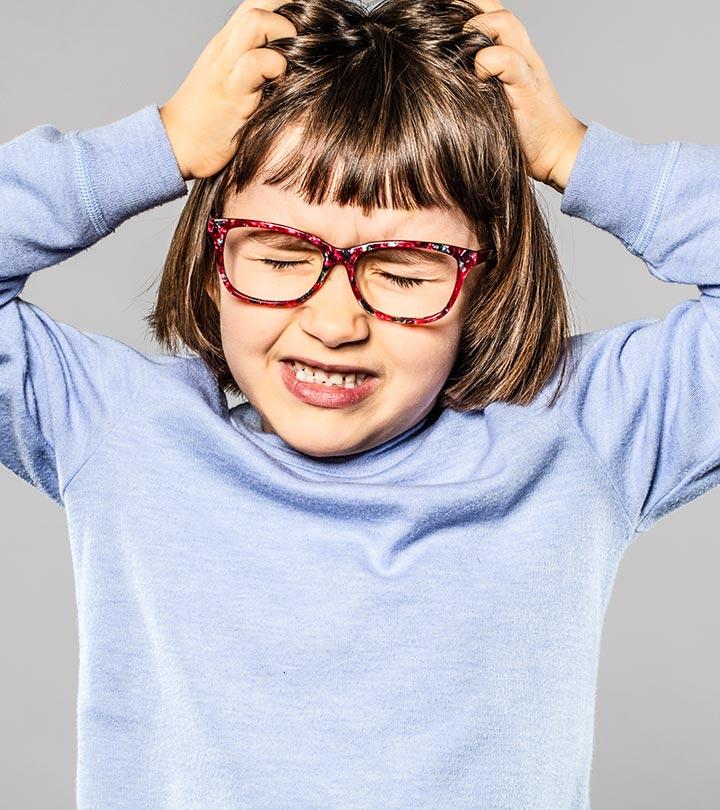Mirena Hair Loss
There is, after all, a surprising association between this contraceptive device and hair loss.

Image: Shutterstock
There are effective birth control pills and medical devices that can be used to prevent pregnancy. One such intrauterine devicei A T-shaped birth control device that is placed in the uterus to prevent pregnancy for around 3 to 10 years and may cause hair loss. (IUD) is Mirena. However, research shows that this T-shaped device may cause alopecia in a few patients (1). Only a small number of people seem to have experienced hair fall due to Mirena. But is there a link between Mirena and hair loss? Read to understand further.
In This Article
Can Mirena Cause Severe Hair Loss And Hair Thinning?
A study was conducted on a few women in New Zealand to understand the effect of Mirena on hair (1). Out of the 1670 women studied, only 3 cases of alopecia were reported. There seems to be a causal association between IUD insertion and alopecia. While the exact connection is unclear, some believe women’s low estrogen levels could be the cause of hair loss.
In another Finnish study, 15.7% of the 18,000 participants had reported hair loss with Mirena.
A blogger shared that getting Mirena was the worst decision of her life, as it made her gain weight and caused hair fall. She states in one of her blog posts, “I collected golfball-sized clumps of hair in the shower and swept further fluffy dust mounds from the corners of my house (i)”
Hence, it is advisable to get counseling before using IUD. While Mirena could potentially cause hair loss, it may have other causes too.
Does Mirena Have Hormones?
Yes, Mirena is a hormonal intrauterine device (IUD). It releases a hormone called levonorgestrel, which is a progestin. This hormone is released into the uterus and helps to prevent pregnancy by thickening its wall. This, in turn, makes it difficult for sperm to reach the egg, making fertilization less likely (1).
Could There Be Other Reasons For Hair Loss?
Women of all ages deal with hair loss. It is normal to lose 50 to 100 hairs a day(2). Hair shedding is normal and a part of your hair follicle cycle. Hair loss happens when the hair fall is greater than the hair growth.
There are three phases in the hair growth cycle:
- Anagen Phase: This is where hair grows (lasts from two to seven years)
- Catagen Phase: There is the shrinkage of hair follicles (lasts for two to three weeks)
- Telogen Phase: Hair falls out in this phase (lasts for two to four months)
Hair loss occurs in 50% of women and is caused by female pattern hair loss. This type of hair loss is common in the following groups of women:
- Women over the age of 40
- Women who have just given birth
- Women undergoing chemotherapy or those who have had adverse effects due to medications
- Women who use hair care products containing harsh chemicals
The different causes for hair loss in women are:
- Heredity: Hair starts thinning in the crown area. This is a type of female pattern hair loss and is known as androgenetic alopecia(also known as male or female pattern baldness). It accelerates during menopause with the loss of estrogen.
- Certain Hair Styles: Hairstyles that strain the roots, like a ponytail or braids, can cause a form of hair loss called traction alopecia. Damage to the hair follicles can make the hair loss permanent.
- Stressful Events: Hair loss can also occur if you have recovered from a recent illness, had surgery, or had lost excessive weight. This hair loss is called telogen effluvium (or hair loss in the resting phase).
- Chemotherapy Or Medications: If you have undergone chemotherapy or radiation therapy, the hair loss happens in the anagen or growth phase. It may result in permanent hair loss too.
- Certain Medical Conditions: You can lose hair if you are dealing with alopecia areatai An autoimmune disorder that causes sudden, patchy hair loss across some or all areas of the body. . This hair loss is temporary.
Here are some signs of hair loss in women:
- You find more hair on your pillow, in the shower, or in your hairbrush
- Hair in the middle of your crown becomes thinner
- You see hair breakage
- Your ponytails are smaller than usual
While Mirena seems to cause hair loss in some women, there could be other factors too like hormonal contraception which includes contraceptive devices and drugs with progestin or levonorgestrel as an active ingredient. You may want to consider all the causes before choosing the right treatment option.
That said, it is recommended to exercise added caution while going for Mirena, as it could cause certain other side effects as well.
Are There Other Side Effects Of Mirena?
Apart from hair loss, Mirena may also cause the following side effects (3):
- Pelvic Inflammatory Disease: You may experience prolonged or heavy bleeding, low abdominal pain, fever, chills, painful sex, or unusual vaginal discharge.
- Embedment: This is when the Mirena gets stuck to the uterine wall. It may become ineffective in preventing pregnancy. The surgical removal of Mirena may be required.
- Perforation: The uterine wall or cervix could be perforated or penetrated during the insertion of the Mirena. This could lead to pregnancy.
- Breast Tenderness: Mirena may cause breast soreness as a side effect in some people. It produces a hormone called progesterone, which can influence breast tissue. This hormone tends to peak before or during the menstrual cycle, which is when you may notice some breast discomfort, swelling, or tenderness.
Other common side effects of Mirena include discomfort during placement and expulsion, missing periods, bleeding changes, and ovarian cystsi A fluid-filled pocket on an ovary’s surface that occurs due to hormonal problems, causing severe, sharp pelvic pain. .
These are the other adverse effects Mirena may cause. Hence, it is important to take the right information before you consider getting a Mirena. You may also want to consider the implications with respect to hair health while Mirena could cause hair loss, is it reversible?
Can You Reverse The Hair Loss Caused By Mirena?
Hair loss due to Mirena could be reversed upon its removal. But it is important first to understand what is causing the hair loss. As we saw, hair loss could have various causes.
The following tips may aid with reversing hair loss:
- Consult A Professional: You need to see a dermatologist and determine the exact cause of your hair loss. A dermatologist treats diseases relating to hair, skin, and nails. Your treatment for hair loss can start after you see a dermatologist.
- Be Gentle With Your Hair: According to dermatologists, if you are suffering from hair loss, you need to change the way you treat your hair. Switch to a gentle shampoo since chemical-based shampoos lead to loss of moisture. Apply a moisturizing conditioner every time you shampoo since it protects your strands and reduces split ends and breakage. Use a leave-in detangler or conditioner after washing and conditioning your hair to reduce frizz and prevent split ends. Use a microfiber towel to dry hair faster with less time spent on blow drying.
- Avoid Hot Oil Treatments: More heat could damage your hair further. Hence, avoid hot oil treatments.
- Stop Styling Your Hair At Home: You are likely to damage your hair by trying DIY coloring, chemical straightening, relaxing, and perming. It is advisable to go to a salon specializing in such services that you require and have professionals examine your hair and scalp before styling it. Make sure that after styling, the stylist applies a moisturizer.
- Limit Heat Treatment: You weaken your hair when you apply heat through hot combs, flat irons, or curling irons. Limit this to special occasions like job interviews.
- Adjust Your Blow dryer Setting: You should avoid blow dryers. If you need to use one, set it to the lowest level. A better choice would be a microfiber towel.
- Avoid Certain Hairstyles: There are certain hairstyles like ponytails, buns, or braids that cause traction alopecia since they pull your hair and strain the roots. Over time, these could lead to permanent hair loss. Try to tie your hair up loosely to avoid this.
- Stop Twisting Your Hair: Stop twisting your hair around or pulling it as it may cause breakage.
- Be Gentle When Combing Your Hair: You should not be harsh when brushing your hair, as this will lead to breakage.
 Quick Tip
Quick Tip- Stop Smoking: Your entire body experiences inflammation when you smoke, and this worsens hair loss. Stop smoking.
- Have A Healthy Diet: Your hair needs sufficient protein and iron for healthy growth. Switch to a diet rich in these nutrients.
- Avoid Restrictive Diets: Diets low in calories may lead to hair loss as they are usually devoid of the essential nutrients. Do not try any diet without consulting your doctor.
- Take The Right Hair Supplements: Consult your healthcare provider and pick the right hair care supplements. Take a blood test to check if you are deficient in any nutrients.
 Quick Tip
Quick TipThese tips can help boost your overall hair health and prevent hair damage.
How Long Will Hair Take To Regrow After Removing Mirena?
In a study, 5 women of different ages with alopecia who had used Mirena were analyzed. The conclusions were (1):
- Two women who were aged 39 recovered after Mirena was discontinued for four months
- One woman aged 33 did not recover even after the withdrawal of Mirena
- The results of two other patients were not known
This does tell us that the possibility of hair regrowth in women with Mirena removed could depend on various other factors. More research is warranted in this regard. Consult your doctor for more details on the same.
Using Mirena may cause hair loss in some women. You must be wondering if this issue can be reversed. Don’t worry. With the right tips and treatments, this issue can be reversed. Check out the infographic below to learn about the effective ways to stop Mierna-related hair loss.

Illustration: StyleCraze Design Team
Mirena is a T-shaped intrauterine device (IUD) that is used to prevent pregnancy. But, this effective birth control may trigger hair loss. However, the hair loss caused by Mirena can be reversed. Talk to your doctor regarding birth control options before using this medical device. And if you find that it is responsible for your hair loss, stop using it immediately and look for other types of birth control. Also, it will take some time for your hair to grow back. Seek a doctor’s opinion for safer alternatives to Mirena and be patient to notice hair regrowth.
Frequently Asked Questions
Can the Mirena cause hormonal imbalance?
While Mirena acts by releasing a synthetic form of progesteronei A sex hormone produced by the ovaries that play a key role in regulating menstrual cycles and supporting pregnancy. , it is not known to cause a hormonal imbalance. On the other hand, sudden removal of Mirena may throw the hormones in disbalance for a short period.
Who should not use Mirena?
Mirena shouldn’t be used by individuals who are pregnant, or those who have a weakened immune system, uterine or breast cancer, issues with the cervix or uterus, liver disease, abnormal bleeding from the vagina, or pelvic infections.
How long does Mirena hair loss last?
It can last for about 20 weeks or more, depending on the course of treatment.
What can I do to prevent hair loss while using Mirena?
Consume a diet that is rich in protein, zinc, iron, vitamins C, E, and A, vitamin B-7 (biotin), and the B complex. Avoid stress with some stress management activities or therapy. We also advise to lightly massaging your scalp with warm oils to improve blood circulation and prevent hair loss.
Should I remove Mirena if I’m experiencing hair loss?
Consult a doctor to check if Mirena is causing hair loss. You can choose to have Mirena removed and try an alternative method of birth control in consultation. Be patient after removing it as it may take a few weeks or months before you notice any improvement in hair growth.
Can the use of Mirena cause hair thinning?
Hair thinning is a common side effect of using Mirena.
What are some alternative birth control options if I’m experiencing hair loss with Mirena?
Consult a doctor to know the best alternative birth control option for you, based on your health condition. You can choose from pills, condoms, injections, patches, diaphragms, and rings.
How long does it take for Mirena to settle?
It nearly takes three months to settle Mirena.
Who should not use Mirena?
Mirena should not be used if you have unusual vaginal bleeding, pelvic infectious disease, or other uterine or cervix problems. Consult your doctor if you have breast cancer, uterine cancer, liver tumor, or a weak immune system.
Key Takeaways
- Mirena is an effective IUD for avoiding pregnancy, but some anecdotal evidence suggests that it may cause hair loss.
- Removing Mirena had been shown to trigger hair regrowth in most cases.
- However, there may be other medical causes for hair loss. Hence, it is important to consult a dermatologist if you experience sudden and severe hair fall.
Take charge and protect your hair from potential damage caused by Mirena birth control. Click on the video below and discover effective strategies to prevent hair loss and maintain the health of your locks.
Personal Experience: Source
StyleCraze's articles are interwoven with authentic personal narratives that provide depth and resonance to our content. Below are the sources of the personal accounts referenced in this article.
i. Why I removed my Mirena and went hormone-freehttps://ohglowblog.blogspot.com/2017/01/why-i-removed-my-mirena-and-went.html
References
Articles on StyleCraze are backed by verified information from peer-reviewed and academic research papers, reputed organizations, research institutions, and medical associations to ensure accuracy and relevance. Read our editorial policy to learn more.
- Paterson, Helen, et al. “Hair loss with the use of the levonorgestrel intrauterine device” https://www.researchgate.net/publication/5945187_Hair_loss_with_use_of_the_levonorgestrel_intrauterine_device
- “Hair Loss in Women” https://my.clevelandclinic.org/health/diseases/16921-hair-loss-in-women
- Mirena https://www.accessdata.fda.gov/drugsatfda_docs/label/2008/021225s019lbl.pdf
Read full bio of Dr. Rekha Yadav
Read full bio of Eshna Das
Read full bio of Swathi E





